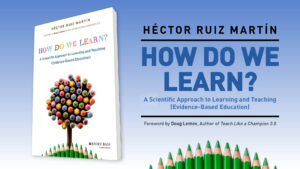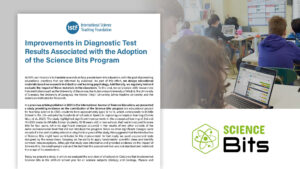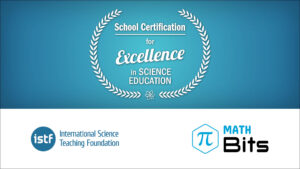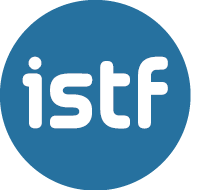Learning Strategies in Secondary School Students:
Relationship with Academic Achievement and Attitudes Toward Learning
July 12th, 2014
Revealing the most effective learning strategies is crucial to fostering academic success and student well-being. In recent years, a growing body of basic and applied research has highlighted actions and circumstances that facilitate lasting and transferable learning. This research has identified promising learning strategies that can help students reach their academic goals and attain higher-quality learning. Some widely popular strategies that lack research support have also been identified. In this regard, previous research had already examined the study strategies used by university students and their relationship with academic achievement.

This study, led by the ISTF in collaboration with researchers from the Autonomous University of Madrid (UAM) and the University of Granada (UGR), builds on previous research by examining a very large and diverse sample of secondary school students. It highlights the techniques they commonly use and how these are related to their school grades. Do the most successful students use learning strategies supported by cognitive research? The study also investigates how various attitudes and beliefs about learning correlate with the use of these specific study strategies. Do students who use effective study strategies feel more confident and experience less test anxiety? Are they driven by a desire for deep learning or simply by the pursuit of high grades?
Key Findings of the Study
Elaboration and Retrieval Strategies. Strategies that involve a higher degree of cognitive elaboration, which means trying to give meaning (understanding) to what is learned, and retrieval practice, which involves recalling from memory what was learned, such as in self-testing, showed a positive correlation with academic results. Interestingly, despite their superior effectiveness, these techniques were less used by students compared to more passive ones.
Ineffectiveness of Low Elaboration Strategies. Contrary to the expectations of many educators and students, strategies such as literal memorization, rereading multiple times, copying texts, or underlining showed no significant correlation with achievement. These practices are known not to contribute substantially to lasting and transferable learning, even though they are very popular.
An interesting finding of the study is the high correlation (r>0.5) between “underlining-copying” and “summarizing,” which suggests that many students summarize by copying what they underlined instead of paraphrasing. This reduces the effectiveness of summarizing as a learning strategy.
Spaced Practice. One of the most surprising results was the lack of correlation between grades and spaced practice (i.e., studying spread out over time rather than cramming just before the exam). Although over a century of research supports that spacing is one of the best ways to achieve lasting and transferable learning, this was not reflected in the academic results of ESO students (ages 12 to 16). This discrepancy could be due to the most common evaluation methods, which do not capture the long-term benefits of this strategy. In other words, typical assessment methods allow students to succeed by cramming at the last minute, even if the learning is short-term. This highlights that learning and grades do not always go hand in hand, especially if the assessment method is not suitable for identifying the durability and transferability of what is learned.
Relationship with Motivation and Anxiety. Interestingly, the study found that students who are more motivated to learn (not just to get good grades) tend to use spaced practice more often. Moreover, the negative correlation between spaced practice and exam anxiety suggests that this strategy could act as a protective factor.
Positive Associations with Self-Efficacy. The study also revealed that elaboration and retrieval strategies not only positively influence academic achievement but are also strongly associated with students’ self-efficacy. Students who apply these strategies tend to have greater confidence in their ability to learn and overcome academic challenges. This is likely because effective strategies lead to better results, which in turn boost students’ confidence in their abilities.
Managing the Learning Environment. Additionally, the study found a positive correlation between academic achievement and strategies that involve managing the learning environment to minimize distractions. In other words, students who eliminate possible distractions in their environment while studying tend to achieve better results. Interestingly, the habit of studying with background music showed a negative correlation with achievement. This fits with the fact that, according to cognitive load theory, adding unnecessary stimuli to the study task reduces its effectiveness. Of course, it can also be explained by the fact that students less motivated to study (probably due to a history of poor performance) try to pass the time by playing music while studying.
Learning to Learn. Finally, 78% of students reported never having received any instruction on how to study. As Don Norman lamented in 1980, “It is strange that we expect students to learn, yet seldom teach them anything about learning.”
Conclusions and Recommendations
These results highlight the importance of adopting evidence-based learning strategies that promote higher-quality learning and even better academic results. They also emphasize the need to review assessment methods to ensure they adequately reflect students’ abilities and encourage the adoption of effective learning techniques.
The conclusion of this study provides a critical perspective on how the learning strategies chosen by students can impact their academic performance and, more importantly, their development as autonomous and effective learners. Therefore, educators are urged to promote the teaching of effective study techniques and provide students with tools to better manage their own learning.
You can find the full scientific article on this study, along with all the detailed references, in open access here.
RELATED POSTS
- Study: Improvements in Diagnostic Test Results Associated with the Adoption of the Science Bits Program by ISTF
- Interview with Dylan Wiliam: Formative Assessment and Its Impact on Education by Héctor Ruiz Martín & Gemma Grau
- Article: Some Misunderstandings about the Use of Screens in the Classroom by ISTF
- Book: Learning to Learn by Knowing Your Brain by Héctor Ruiz Martín
- Book: How Do We Learn? by Héctor Ruiz Martín

The International Science Teaching Foundation (ISTF) is a non-profit organization committed to improving STEM education, headquartered in London and Barcelona. The ISTF is formed by more than 30 scientists, educators and experts who work tirelessly to improve science teaching worldwide. Its mission is to foster an international community of STEM educators with an active dedication and commitment.











Hello:
Do you offer any course or certification in learning strategies or learning sciences?
Dear Alberto,
Thank you for contacting us.
Unfortunately, our online courses are not available in your country. However, we suggest you to get one of Héctor Ruiz Martín’s books on Amazon Kindle or ebook version.
There are available “How Do We Learn?” and “Learning to Learn by Knowing Your Brain“.
You can also find the Spanish version, if your are interested. Learn more here: https://science-teaching.org/es/libros
Best regards,
The ISTF Team
Thank you. I have already read all the books by Dr. Héctor Ruiz in both Spanish and English.